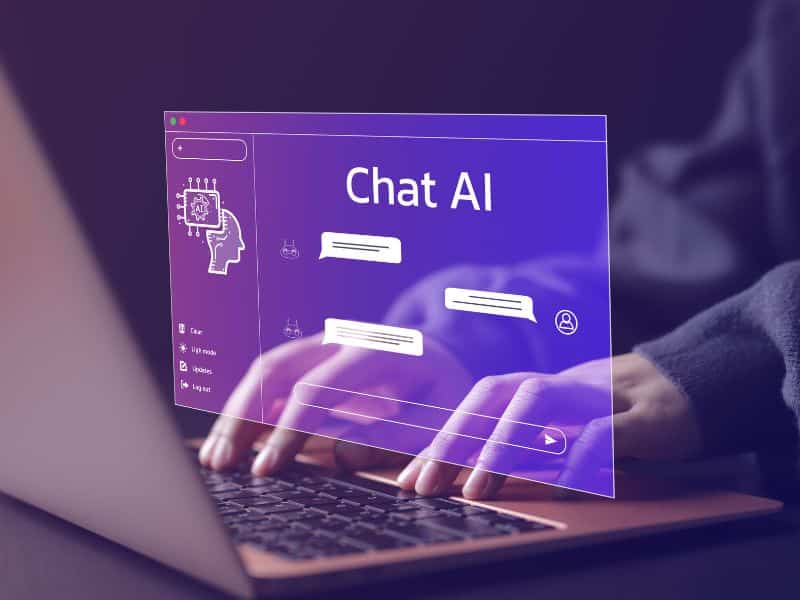In an era defined by technological advancement, Artificial Intelligence (AI) emerges as a pivotal force reshaping various sectors, including education. The integration of AI tools and technology offers immense potential to revolutionize traditional learning methods, enhance student engagement, and improve educational outcomes. However, ensuring the ethical and responsible use of AI in education is paramount. This article explores the effective integration of AI into schools to improve education and provides guidelines for students to ethically leverage AI for an enhanced learning experience.

Demystifying AI: Understanding the Foundation
Artificial Intelligence (AI) represents a branch of computer science dedicated to creating systems or machines capable of performing tasks that typically require human intelligence. At its core, AI involves the emulation of human intelligence processes by machines, enabling them to learn from experience, adapt to new inputs, and execute tasks that involve reasoning, problem-solving, perception, and even creativity.
The foundational understanding of AI is crucial for comprehending its role in education. By recognizing that AI enables machines to simulate cognitive functions akin to those of humans, educators and students can better appreciate how AI can enhance the learning experience. Whether it’s through personalized learning algorithms, intelligent tutoring systems, or data-driven decision-making AI tools, AI’s capacity to replicate human-like intelligence forms the bedrock upon which innovative educational technologies are built.

AI’s Role in Education: Transforming Teaching and Learning
AI’s role in education is nothing short of transformative, with the potential to revolutionize traditional teaching and learning methods. At its core, AI is poised to profoundly impact how students absorb knowledge, how teachers impart it, and how educational institutions operate. Here’s how AI is reshaping the educational landscape:
Personalized Learning Experiences
One of the most profound impacts of AI in education is its ability to tailor learning experiences to individual students. By analyzing vast amounts of data about each student’s strengths, weaknesses, learning styles, and preferences, AI systems can create customized learning pathways. This personalized approach ensures that students receive instruction that is tailored to their unique needs, maximizing engagement and understanding.
Automating Administrative Tasks
Beyond personalized learning, AI can streamline administrative tasks that often consume valuable time and resources for educators. Tasks such as grading assignments and tests, scheduling classes, and tracking student attendance can be automated using AI-powered systems. By reducing the burden of administrative duties, teachers can devote more time and energy to their core responsibility: teaching.
Providing Valuable Insights
AI enables educators to gain invaluable insights into student performance by analyzing data in real-time. Machine learning algorithms can identify patterns and trends in student behavior, academic progress, and areas of improvement. Armed with this information, teachers can make data-driven decisions to optimize their instructional strategies and provide targeted interventions to students who may be struggling.
Enhancing Instructional Strategies
Furthermore, AI can assist educators in developing more effective instructional strategies. By analyzing data on student learning patterns and outcomes, AI systems can suggest personalized recommendations for teaching methods, resources, and activities. This data-driven approach empowers teachers to adapt their teaching strategies to better meet the needs of diverse learners, ultimately improving learning outcomes.

AI’s Influence on Teaching and Learning: Redefining Educator Roles
AI’s influence on teaching and learning is profound, heralding a paradigm shift in educator roles. Traditionally, educators were primarily tasked with delivering information to students. However, with the advent of AI, educators are transitioning towards a more strategic and personalized approach to instruction. AI enables educators to move beyond the one-size-fits-all model of teaching and tailor their lessons to meet the unique needs and learning styles of individual students. This personalized approach not only enhances student engagement but also fosters deeper understanding and retention of concepts.
Moreover, AI significantly impacts the learning process itself, revolutionizing the way students interact with educational content. By leveraging AI-powered tools and platforms, students can engage in more interactive and immersive learning experiences. These AI tools provide personalized feedback, adapt to students’ progress in real-time, and offer additional resources based on their individual needs. As a result, learning becomes more dynamic, adaptive, and effective, empowering both educators and students to achieve better educational outcomes.
Overall, AI’s influence on teaching and learning goes beyond mere information delivery—it redefines the roles of educators and transforms the learning experience for students. With AI, educators can shift their focus towards personalized instruction, fostering deeper engagement and understanding among students. Simultaneously, students benefit from more interactive and adaptive learning experiences, empowering them to take ownership of their education and achieve greater academic success.

The Future of AI in Education: Promising Prospects
The integration of AI into education holds vast promise, offering a myriad of opportunities such as personalized learning pathways tailored to individual student needs. Real-time tutoring support facilitated by AI ensures students receive immediate guidance and assistance, fostering a supportive learning environment. Furthermore, AI enables data-driven decision making for educators, allowing them to analyze student performance trends and optimize teaching strategies accordingly.
Intelligent content creation powered by AI generates interactive and engaging educational materials, enhancing student comprehension and retention. These advancements revolutionize learning methods, fostering a dynamic educational experience. AI integration enables adaptability and responsiveness to student needs, deepening concept understanding.
By leveraging AI technology, educators can deliver tailored instruction and support, maximizing student potential and academic success.The future of AI in education holds promise for innovative learning environments, where technology enhances the educational journey for all. Ethical integration is crucial for maximizing AI’s benefits.
Read More: Best Language Learning Apps for 2023

Ethical Use of AI in Education: Guiding Principles for Students
Students must understand AI algorithms and prioritize privacy in educational AI use. Additionally, students should uphold academic integrity by avoiding plagiarism, acknowledging the significance of originality and proper attribution in scholarly work.
Collaboration becomes essential as students navigate AI technologies, fostering an environment of shared learning and collective growth. Furthermore, critical thinking skills are paramount, enabling students to analyze AI-generated content critically and discern its validity and reliability. Following AI tool guidelines promotes responsible use, minimizing unethical behavior and unintended consequences. These principles help students navigate AI’s ethical challenges, optimizing its benefits while reducing drawbacks.
Read Nore: Best Cable Modems in 2024

Conclusion
As we navigate the transformative potential of AI in education, it’s imperative to balance its power with ethical considerations. Ethical AI use maximizes benefits, enhances learning, and fosters essential skills for the future. Responsible integration shapes an empowered education system.






